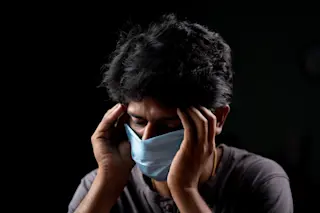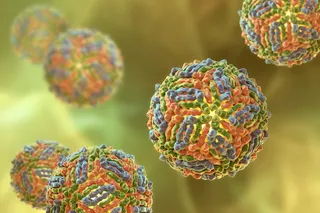If you’re gearing up to get your COVID-19 vaccine, maybe keep your schedule light for the day after your second shot — or only shot, if you’re getting the Johnson and Johnson variety.
Some people feel muscle aches, pains or just flat-out exhaustion afterward, side effects that other vaccines prompt in people, too. “These are not unexpected,” says Carlos Malvestutto, an infectious disease physician at Ohio State University Wexner Medical Center. “We see them to a higher or lesser extent with pretty much every vaccine.” And while who feels what symptoms and when might surprise some people, the way the side effects are playing out now that millions are getting vaccinated lines up with what a lot of medical professionals expected to see.
First things first: “That reaction is not having COVID-19,” Malvestutto says. The vaccines can’t bring you down with the infection — they only supply snippets of the ...














